Uncategorized
5 Best Medication for Liver Disease: Unveiling New Hope Against Liver Disease! – What Doctors Aren’t Telling You!
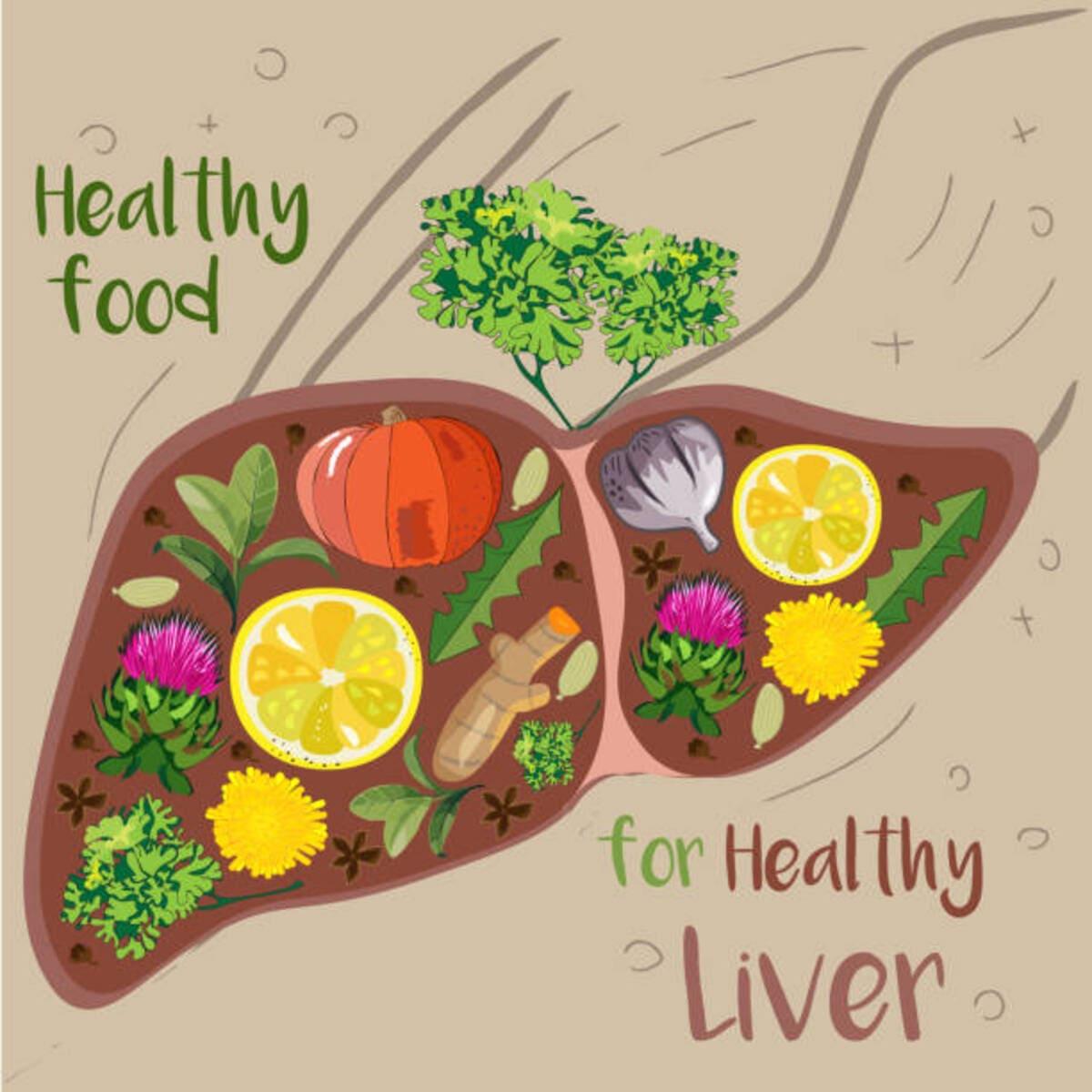
The liver is a vital organ that performs over 500 essential functions in the body, including processing nutrients, manufacturing proteins, and removing toxins from the blood.
Liver disease can disrupt these crucial processes and lead to potentially life-threatening complications. Having a deeper understanding of the various types of liver disease, common symptoms, and major causes and risk factors is key for prevention, early diagnosis, and prompt treatment.
Four Key Takeaways on Medication For liver Disease:
- Medications must be tailored to address the specific pathological mechanisms underlying different types of liver disease – whether viral, autoimmune, metabolic or genetic. Antivirals target hepatitis while insulin sensitizers and antioxidants help fatty liver.
- Lifestyle interventions including weight loss for NAFLD, alcohol avoidance and risk factor modification strongly complement pharmaceutical therapy for improved liver health.
- Closely monitoring lab markers of medication response allows optimizing treatment efficacy through evidence-based changes in therapeutic strategy aligned with patient trajectory.
- Emerging approaches like antifibrotics, stem cell transplantation and gene editing therapies offer tremendous promise for reversing liver damage from chronic inflammatory conditions.
A. Types of Liver Disease
There are over 100 identified liver diseases, which are broadly categorized as follows:
- Viral Hepatitis – Liver inflammation caused by hepatitis viruses like hepatitis A, B, C, D, and E. Of these, hepatitis B and C lead to chronic liver disease.
- Alcoholic Liver Disease – Liver damage from excessive alcohol use, encompassing fatty liver, alcoholic hepatitis, and cirrhosis.
- Non-Alcoholic Fatty Liver Disease (NAFLD) – Fat accumulation in liver cells, often caused by obesity, diabetes, or dyslipidemia. Can progress to non-alcoholic steatohepatitis (NASH) and cirrhosis.
- Autoimmune Diseases – Diseases involving immune system attacking liver cells like autoimmune hepatitis, primary biliary cholangitis (PBC) and primary sclerosing cholangitis (PSC).
- Genetic Diseases – Inherited disorders affecting liver function like hemochromatosis, Wilson’s disease, alpha-1 antitrypsin deficiency, and glycogen storage diseases.
- Cirrhosis – Late stage severe liver damage from many liver diseases causing extensive scar tissue replacing healthy liver tissue.
The different categories of liver disease call for different medication approaches tailored to their pathophysiology.
B. Identifying Symptoms of Liver Disease
Many liver diseases do not cause prominent signs in early stages, making diagnosis challenging. Some common symptoms pointing to possible liver problems include:
- Jaundice – yellow discoloration of skin and eyes
- Dark urine and pale stools
- Itchy skin
- Abdominal swelling and fluid accumulation
- Easy bruising and abnormal bleeding
- Fatigue and weakness
- Loss of appetite and unintentional weight loss
- Nausea and vomiting
However, many patients remain asymptomatic until extensive liver damage manifests through signs like ascites, variceal bleeding, hepatic encephalopathy, and liver cancer.
Blood tests assessing liver enzymes and function are essential to detect most liver conditions.
C. Exploring Causes and Risk Factors
Various factors that significantly increase susceptibility to liver disease include:
Viral Infections – Hepatitis B and C viruses spreading via infected blood, unprotected sex, needle sharing, etc. Hepatitis A and E spread through contaminated food and water.
Excessive Alcohol Intake – Regular heavy drinking over many years inducing fatty liver changes.
Non-alcoholic Fatty Liver Disease – Metabolic syndrome markers like obesity, high blood sugar, hypertension, and abnormal cholesterol.
Autoimmune Disorders – Unknown triggers causing body’s immune defenses to mistakenly target liver cells and bile ducts.
Genetic Conditions – Inherited mutations impairing liver function or increasing accumulation of substances like iron, copper, or glycogen.
Toxins and Chemicals – Environmental exposures to industrial chemicals, aflatoxins, pesticides, heavy metals etc.
Many of these causal factors interact synergistically to amplify liver injury. Hence, managing these appropriately through medications or lifestyle changes is vital.
5 Best Medication for Liver Disease: Unveiling New Hope Against Liver Disease!
Here are 5 of the best medications for liver disease and how they offer new hope:
- Antiviral Medications: Powerful antiviral medications like sofosbuvir and velpatasvir are curing hepatitis C, which is the most common cause of liver failure and transplant. Over 95% of hepatitis C patients can now be cured with 8-12 weeks of treatment.
- Antifibrotics: Promising new antifibrotic drugs like selonsertib help stop progression of scarring in conditions like NASH by blocking pathways that stimulate collagen production in the liver. Though still experimental, antifibrotics could prevent many cases of cirrhosis.
- Stem Cell Therapies: Stem cell therapy shows potential to regenerate healthy liver tissue and improve liver function. In early trials, over 70% of patients with liver failure stabilized or improved. Stem cells may soon change outlooks for advanced liver disease.
- Tipepidine: Originally developed as a cough suppressant, tipepidine has powerful anti-inflammatory effects in the liver and shows promise against diseases ranging from NAFLD to viral hepatitis. Researchers are now rigorously testing its efficacy and safety.
- CUR-915: CUR-915 is an engineered hybrid molecule that disrupts cell signaling pathways involved in liver inflammation and fibrosis. Early human trials found it well tolerated with signs it can dampen disease progression. Large phase 2b trials are now planned for NASH treatment.
The bottom line is that beyond traditional drugs that simply manage symptoms, truly revolutionary medications that can cure viral hepatitis, halt progression of fibrosis, spur liver regeneration, and dampen liver inflammation are starting to emerge. Exciting times lay ahead in treating liver conditions!
II. Medications Tailored for Various Liver Diseases
Given the diverse mechanisms driving different forms of liver disease, it is crucial to choose medications that specifically target the predominant pathological pathways involved.
A. Addressing Viral Hepatitis
For hepatitis B and hepatitis C, antiviral medications that suppress viral replication form the cornerstone of therapy.
1. Antiviral Medications: Mechanisms and Effectiveness
Hepatitis B antivirals like tenofovir or entecavir mimic naturally occurring DNA building blocks, getting incorporated into the virus and causing early chain termination thereby suppressing virus proliferation.
Newer hepatitis C direct acting antivirals (DAAs) including sofosbuvir, voxilaprevir, glecaprevir etc. target specific non-structural proteins the virus requires for replication and assembly.
Using DAA regimens cure hepatitis C in over 95% patients through sustained virologic response. However, their high cost remains a barrier to mass adoption.
2. Immunosuppressants: Role in Hepatitis Treatment
In autoimmune hepatitis, immunosuppressants like prednisone, azathioprine reduce overactive immune attack on liver cells. They act by impeding proliferation of lymphocytes and pro-inflammatory signals.
Corticosteroids form first line treatment, while azathioprines allow lower steroid doses to minimize side effects.
3. Importance of Vaccinations in Preventing Hepatitis
Effective vaccination exists for hepatitis A and B viruses. Preventive vaccination is vital to reduce disease burden globally through herd immunity.
Hepatitis A vaccination confers enduring immunity using inactivated virus or recombinant subunit platforms. Hepatitis B vaccination comprises recombinant surface antigen formulated with adjuvants, needing booster doses for sustained protection.
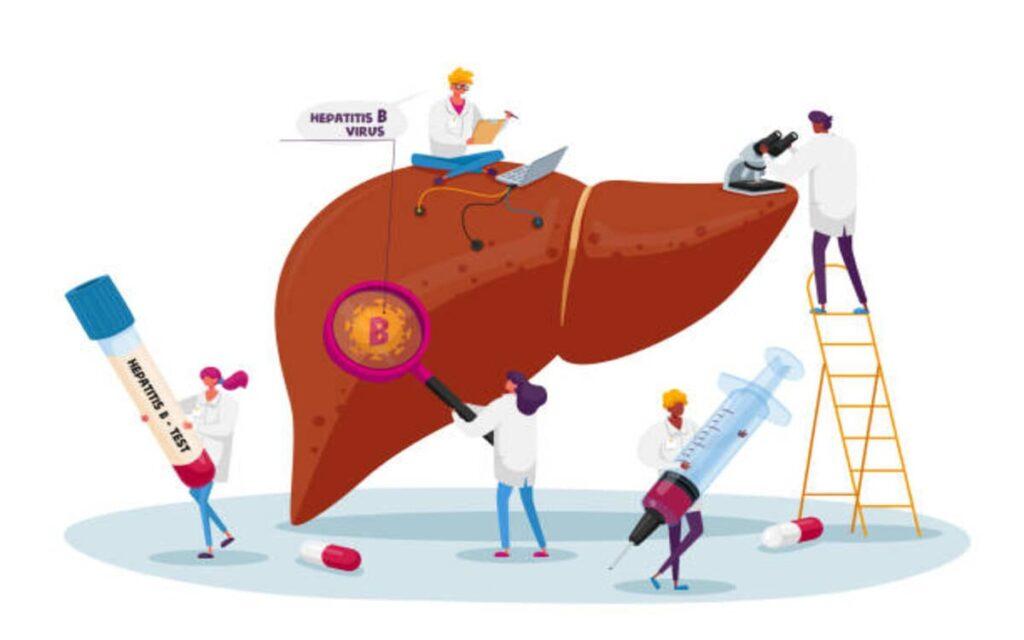
B. Management of Fatty Liver Disease (NAFLD/NASH)
Medications for addressing metabolic dysfunction, oxidative stress and inflammation driving disease progression are frontline therapies for fatty liver diseases.
1. Insulin Sensitizers: Function and Efficacy
Insulin sensitizing drugs like pioglitazone and vitamin E enhance insulin signaling pathways dampened by fatty acid accumulation and metabolic inflammation in liver cells.
Pioglitazone trials demonstrate histological benefits, with vitamin E improving liver enzymes and fat content as well. However, safety concerns with long term vitamin E use remain.
2. Antioxidants: Impact on Liver Health
Oxidative free radicals generated through metabolic dysregulation and inflammation can exacerbate hepatocyte injury and fibrosis progression in NASH.
Antioxidants like vitamin E, betaine, N-acetylcysteine replenish glutathione stores to mitigate oxidative damage. Peroxisome proliferator-activated receptor agonists also boost antioxidant defenses.
3. Lipid-lowering Medications: Effects on Fatty Liver
Statins, fibrates enhance clearance of triglycerides and circulating fatty acids through increasing oxidation and reducing synthesis pathways. Ezetimibe decreases intestinal cholesterol absorption.
These help regress liver fat accumulation, laboratory abnormalities and steatohepatitis changes, indirectly improving insulin sensitivity and metabolic profile.
C. Treatment Approaches for Cirrhosis
In advanced scarring and liver failure from cirrhosis, medications aim to manage complications and slow disease progression.
1. Diuretics: Managing Fluid Retention
Ascites and peripheral edema resulting from poor albumin synthesis and portal hypertension are treated with aldosterone antagonists like spironolactone and loop diuretics like furosemide.
These promote excretion of retained sodium and water through urine. However, electrolyte monitoring is essential given risk of overdiuresis.
2. Beta Blockers: Controlling Blood Pressure in Cirrhosis
Non-selective beta blockers like propranolol and carvedilol lower portal pressure by inducing vasoconstriction in splanchnic circulation, which reduces variceal bleeding risk.
They also decrease cardiac output and improve renal perfusion in advanced disease.
3. Antibiotics and Laxatives: Role in Cirrhosis Management
Gut microflora imbalances can increase ammonia production and absorption leading to hepatic encephalopathy. Antibiotics like rifaximin alleviate this by reducing bacterial content.
Lactulose syrup is first line for constipation and encephalopathy through its laxative effects and acidifying gut contents, lowering ammonia uptake.
Additionally, negligible systemic absorption of these agents minimizes risks of adverse events in patients with severely impaired liver function.
III. Choosing the Most Effective Medication
With the wide range of pharmaceutical options available, determining the optimal medication for a patient requires assessing liver status, potential interactions and closely tracking treatment response.
A. Assessing Liver Function for Optimal Medication Choice
Since the liver metabolizes most drugs, impairment in its synthetic, excretory and detoxifying capacity significantly impacts medication pharmacokinetics and effects.
Hence, liver function tests (LFTs), Child-Pugh-Turcotte scores and Model of End-stage Liver Disease (MELD) scores help gauge residual function to guide appropriate drug selection and dosing.
Dose adjustments or substituting metabolized drugs with those undergoing renal clearance preserves efficacy and minimizes toxicity.
B. Understanding Side Effects and Potential Interactions
Medications can exacerbate liver injury or interact with other drugs a patient is taking for comorbidities like diabetes, hypertension etc.
Hence, vigilantly monitoring onset of liver associated symptoms like jaundice and avoiding interacting drug combinations prevents further deterioration.
Seeking therapies with lower hepatotoxicity risk profiles further optimizes medication safety.
C. Importance of Monitoring Response to Treatment
Frequent medical review through relevant lab tests assessing infection clearance or histological changes guides continued usage, modification or discontinuation of pharmacological therapy.
Sustained responses signal successful treatment, while inadequate responses indicate need for alternative interventions or addresses compliance issues.
This allows optimizing patient outcomes through evidence-based changes in therapeutic strategy.
IV. Enhancing Medication Effectiveness
While appropriate medications can effectively manage various liver conditions, integrating certain lifestyle measures improves response. Patient engagement in treatment process also ensures compliance.
A. Adhering to Prescribed Treatment Plans
Strictly following prescribed drug regimens, including completing full course for therapies like hepatitis C antivirals or immunosuppressants in autoimmune hepatitis, is key for durable responses.
Skipping doses risks infection relapse and fosters drug resistance due to subtherapeutic drug levels. Hence, adherence vitally supplements pharmacological potency.
B. Embracing Lifestyle Modifications for Liver Health
Diet and exercise interventions help address obesity, dyslipidemia and diabetes – major risk factors for NAFLD progression. Losing at least 10% body weight and avoiding foods high in fat, cholesterol and fructose alleviates fatty changes.
Exercise also tackles insulin resistance and benefits metabolic parameters underlying liver injury. Restricting alcohol and unnecessary medications further supports liver recovery.
C. Regular Checkups and Follow-ups for Better Management
Consistent physician follow-ups assessing viral load suppression, antibody titers, liver biochemistries etc. provide objective indicators of patient trajectory.
Periodic screening for liver cancer using ultrasound and alpha-fetoprotein in chronic hepatitis and cirrhosis enables early tumor detection and prompt treatment if required.
Together, these strengthen long term prognosis through closely supervised disease management tailored to patient response.
V. Exploring Future Prospects in Liver Disease Medications
While current treatments for many liver diseases have limitations, emerging drug classes and innovative approaches promise more effective future management options.
A. Antifibrotic Drugs: Promise in Liver Disease Treatment
Medications targeting molecular regulation of extracellular matrix deposition and scar tissue proliferation seek to directly attenuate fibrogenic pathways driving cirrhosis progression.
Examples include lysyl oxidase-like 2 inhibitors, galectins antagonists, certain interleukins and growth factor modulators which are undergoing trials.
B. Role of Stem Cell Therapies in Liver Regeneration
Stem cells owing to their regenerative and immuno-modulatory properties may reverse liver injury or augment recovery post transplant.
Both hematopoietic and mesenchymal stem cells are being investigated for conditions ranging from cirrhosis and acute liver failure to inherited metabolic liver disorders.
C. Advancements in Gene and RNA Therapies for Liver Conditions
Gene vectors inserting functional genes help correct certain monogenic inherited liver defects due to enzyme deficiencies.
RNA interference through small interfering RNAs can selectively silence disease drivers like hepatitis C virus protein production and shows initial success against HCV infection.
These emerging platforms herald tremendous therapeutic potential.
VI. Frequently Asked Questions (FAQs)
1. What is the most common medication for liver disease?
The most commonly used drugs are statins, antivirals, immunosuppressants and various symptomatic medications for cirrhosis complications like diuretics, beta blockers etc. based on the specific liver condition.
2. What vitamins should I take for liver disease?
Vitamin E, vitamin C, B complex vitamins, vitamin K, zinc and milk thistle supplements can help reduce oxidative damage and support liver recovery. But consult your doctor before starting supplements.
3. What foods interact with liver disease medications?
Grapefruit, fatty/oily foods, alcohol, iron/calcium/magnesium rich produce can respectively affect drug metabolism, absorption and excretion – requiring dose adjustments. Strict diets may be needed.
4. Can I take OTC pain medications if I have liver problems?
Acetaminophen is contraindicated with advanced liver disease due to risk of toxicity. Other NSAIDs also need close monitoring and minimal required doses. Speak to your hepatologist regarding pain management.
5. How long do I need to take liver medications?
It depends on the medication and condition – curative antivirals are taken for 8-12 weeks while immunosuppressants for autoimmune disease can last from 2 years to lifelong. Never stop medications without medical advice.
6. What are signs my medication is not working?
Persisting symptoms like jaundice, ascites, bleeding etc., abnormal LFT trends, detectable virus titers (for hepatitis) could suggest suboptimal response – needing regimen change as per physician guidance.
7. Is there a cure for liver disease?
Curative options are disease dependent – hepatitis C has excellent cure rates with DAAs while cirrhosis requires liver transplant. NAFLD and other diseases may be managed through lifestyle measures and medications to prevent progression.
8. What happens if I stop taking my liver medication?
Stopping medications can precipitate acute flares or exacerbate existing liver injury. Transplant recipients risk organ rejection while hepatitis resurgence occurs post antivirals. Always consult your doctor beforehand.
Adhering to liver health management plans is vital for optimal outcomes. Being vigilant, promptly communicating with your care team and sticking to treatment enables conquering liver disease!
Summary on Medication for Liver Disease
This comprehensive guide examines tailored medications for diverse liver illnesses – from hepatitis antivirals, immunosuppressants for autoimmune conditions to diuretics and beta blockers managing cirrhosis complications.
We assessed insulin sensitizers, antioxidants and lipid lowering drugs for addressing metabolic dysfunction and inflammation in fatty liver disease.
The importance of nuanced prescribing aligned with liver status, wary monitoring for side effects and tracked treatment response using relevant lab tests is underscored.
For best outcomes, structured pharmaceutical regimens must be integrated with lifestyle changes targeting comorbidities like obesity and diabetes.
We also surveyed cutting-edge research on upcoming therapies like antifibrotic small molecules, stem cell approaches and gene vector techniques offeringhope to progressive liver disease sufferers.
With both vigilance and optimism, the expanding therapeutic arsenal against liver conditions presages improved prognosis and quality of life for patients.
References
https://www.niddk.nih.gov/health-information/liver-disease
https://www.hepatitis.va.gov/patient/treatments/medication-liver-disease.asp https://www.aasld.org/publications/practice-guidelines-0
- The Hidden Power of Prostadine Prostate Medication: What Doctors Aren’t Telling You! – Side Effects Exposed, Is Prostadine Scam Or Legit? -
- 5 Best Medication for Liver Disease: Unveiling New Hope Against Liver Disease! – What Doctors Aren’t Telling You! -
- Don’t Ignore These Signs! Liver Enzymes Test Reveals How Close You Are to Sudden Organ Failure – Your Key to a Healthier You! -
Uncategorized
Benign Prostatic Hyperplasia Foods to Avoid – That Irritate The Bladder by Triggering an Inflammatory Response

Benign Prostatic Hyperplasia (BPH), also known as prostate gland enlargement, is a prevalent condition among aging men. It involves the non-cancerous growth of the prostate gland, resulting in urinary symptoms and potential complications.

While medical interventions and lifestyle modifications play a crucial role in managing BPH, dietary choices can significantly impact its symptoms and progression.
Foods high in acids, such as citrus fruits, tomatoes, and vinegar, can irritate the bladder by triggering an inflammatory response that can worsen your symptoms.
Processed meats, such as bacon, hot dogs, and sausages, can be high in saturated fat, which can increase inflammation and worsen your symptoms.
This comprehensive guide on benign prostatic hyperplasia foods to avoid will delve into the relationship between diet and BPH, focusing on foods to avoid for better symptom management and improved quality of life.
Now let’s proceed to the next section: Understanding Benign Prostatic Hyperplasia (BPH).
Understanding Benign Prostatic Hyperplasia (BPH)
Benign Prostatic Hyperplasia refers to the non-cancerous enlargement of the prostate gland, primarily affecting aging men. As men grow older, hormonal changes, specifically an increase in dihydrotestosterone (DHT), contribute to the growth of the prostate gland.
This growth gradually obstructs the urethra, causing urinary symptoms and potentially impacting bladder function.
Symptoms of BPH And Impact on Quality of Life
The symptoms of BPH can significantly affect a man’s daily life. These include:
1 Frequent Urination: Individuals may experience a need to urinate more often, especially at night (nocturia).
2 Urgency: A sudden and compelling need to urinate might occur.
3 Weak Stream: Urinary flow might be weak or intermittent.
4 Incomplete Emptying: A sensation that the bladder isn’t entirely emptied after urination.
5 Difficulty Starting Urination: Some men might have trouble initiating urination.
Risk Factors:
• Age: BPH is more prevalent in older men, with the risk increasing with age.
• Family History: A family history of BPH increases the likelihood of developing the condition.
• Hormonal Changes: Changes in hormone levels, particularly an increase in DHT, contribute to prostate enlargement.
Diagnosis and Treatment:
A healthcare professional usually diagnoses BPH through a combination of medical history, physical examination, and tests like the digital rectal exam (DRE) or prostate-specific antigen (PSA) test.
Treatment options include medication, minimally invasive procedures, or surgery, depending on the severity of symptoms and individual health factors.
Understanding the symptoms and risk factors associated with BPH is essential for early detection and management. The impact of diet on BPH symptoms has garnered significant attention, leading to exploration into dietary modifications for better symptom management.
How To Foods That Shrink An Enlarged Prostate (Watch The Video)

The Role of Diet in Managing BPH
The connection between diet and prostate health has gained significant attention in recent years. Research suggests that dietary choices can influence BPH symptoms and disease progression.
Importance of a Balanced Diet for Prostate Health
Maintaining a balanced diet rich in nutrients, antioxidants, and certain minerals can positively impact prostate health. Incorporating fruits, vegetables, whole grains, lean proteins, and healthy fats can provide essential nutrients and potentially reduce the risk of BPH progression.
Impact of Certain Foods on BPH Symptoms
While many foods contribute positively to prostate health, some can exacerbate BPH symptoms. These foods often contain substances that irritate the prostate or worsen urinary issues. Understanding and avoiding these foods can help manage BPH symptoms more effectively.
The next section will delve into specific Foods to Avoid for Prostate Health based on scientific evidence and their impact on BPH symptoms.

Foods to Avoid for Prostate Health
Dietary choices significantly impact prostate health and can either alleviate or exacerbate BPH symptoms. Here, we’ll explore specific foods that individuals managing BPH should consider avoiding:
1. Red Meat and Processed Meats
Explanation: Red meat, such as beef, lamb, and pork, along with processed meats like bacon and sausages, are rich in saturated fats and can potentially worsen BPH symptoms. Studies suggest that high consumption of red and processed meats may increase the risk of developing BPH or aggravate existing symptoms.
Healthier Alternatives: Opting for leaner protein sources like poultry, fish, tofu, or legumes can provide essential nutrients without the detrimental effects linked to red and processed meats.
2. High-Fat Dairy Products
Discussion: High-fat dairy products, including whole milk, cheese, and butter, contain saturated fats that may contribute to inflammation and aggravate BPH symptoms. Research indicates that a high intake of full-fat dairy products might correlate with an increased risk of BPH progression.
Low-Fat Dairy Substitutes: Switching to low-fat or fat-free dairy options, such as skim milk, reduced-fat cheese, or plant-based alternatives like almond or oat milk, can be beneficial for individuals with BPH.
3. Caffeine and Alcohol
Explanation: Caffeinated beverages like coffee, tea, and sodas, as well as alcohol, can act as diuretics, leading to increased urine production and exacerbating urinary symptoms associated with BPH. These substances can irritate the bladder, causing more frequent urination.
Tips for Reduction: Moderation or avoidance of caffeinated drinks and alcohol might help alleviate urinary symptoms. Opting for herbal teas or non-caffeinated beverages can be a suitable replacement.
4. Spicy Foods and Certain Condiments
How They Affect BPH: Spicy foods and condiments like hot sauces or chili peppers can irritate the bladder and exacerbate urinary issues for individuals with BPH. They might lead to increased urgency and frequency of urination.
Milder Options: Substituting spicy seasonings with milder herbs and spices like basil, oregano, or rosemary can add flavor without causing irritation.
5. High-Sodium Foods
Connection with Urinary Issues: High-sodium diets can result in fluid retention and increased blood pressure, potentially aggravating urinary symptoms for individuals with BPH. Excess sodium intake might lead to more frequent urination and discomfort.
Low-Sodium Alternatives: Opting for fresh fruits and vegetables, using herbs and spices for flavor instead of salt, and reading food labels to choose low-sodium options can help reduce sodium intake.
6. Sugary Foods and Beverages
Impact on Inflammation: Foods high in added sugars can contribute to inflammation, potentially worsening BPH symptoms. Research suggests that high sugar intake might increase the risk of BPH progression.
Healthier Sweeteners: Choosing natural sweeteners like honey or consuming fruits to satisfy sweet cravings can be a healthier alternative to processed sugars.
7. Refined Carbohydrates
Effect on Insulin Levels: Refined carbohydrates like white bread, white rice, and sugary cereals can lead to rapid spikes in blood sugar levels, affecting insulin production. Studies suggest a link between high insulin levels and BPH progression.
Whole Grain Options: Opting for whole-grain alternatives like brown rice, quinoa, and whole-grain bread can provide sustained energy and contribute to better blood sugar regulation.
8. Processed Foods with Additives
Impact of Additives: Processed foods often contain additives, preservatives, and artificial flavors that can worsen BPH symptoms. These additives might irritate the bladder and exacerbate urinary issues.
Fresh Food Choices: Focusing on fresh, whole foods and minimizing processed and packaged foods can reduce exposure to additives and contribute to better prostate health.
The Impact of Diet on BPH
Dietary choices play a pivotal role in overall health and may significantly influence the progression and symptoms of Benign Prostatic Hyperplasia.
While there’s no definitive evidence that specific foods directly cause BPH, certain dietary patterns and components have been associated with exacerbating symptoms and potentially contributing to prostate issues.
Factors Influencing BPH Progression:
1 Inflammation: Chronic inflammation within the body may aggravate BPH symptoms. Foods high in saturated fats, processed sugars, and excessive red meat consumption may contribute to inflammation.
2 Hormonal Influence: Some dietary components, such as phytoestrogens found in soy-based products, may affect hormone levels, potentially impacting prostate health.
3 Bladder Irritants: Certain foods and beverages act as bladder irritants, exacerbating urinary symptoms associated with BPH. These include caffeinated beverages, spicy foods, acidic foods, and alcohol.
4 Obesity and Metabolic Syndrome: Poor dietary habits leading to obesity and metabolic syndrome might exacerbate BPH symptoms due to increased inflammation and hormonal changes.
Studies suggest that adopting a healthy diet may help manage BPH symptoms and reduce the risk of progression. Incorporating foods that are part of a balanced and prostate-friendly diet can potentially alleviate symptoms and contribute to better overall health.
Prostate-Friendly Diet:
1 Fruits and Vegetables: Rich in antioxidants, vitamins, and minerals, fruits and vegetables, especially those with deep colors like berries, tomatoes, and leafy greens, may have protective effects against prostate issues.
2 Healthy Fats: Omega-3 fatty acids found in fish, flaxseeds, and walnuts possess anti-inflammatory properties that might benefit prostate health.
3 Plant-Based Proteins: Legumes, tofu, and other plant-based protein sources are generally lower in saturated fats and might be beneficial for prostate health.
4 Green Tea: Known for its antioxidant properties, green tea consumption has been associated with potential benefits for prostate health.
While these dietary considerations show promise, it’s equally crucial to understand which foods to avoid or limit to manage BPH symptoms effectively.
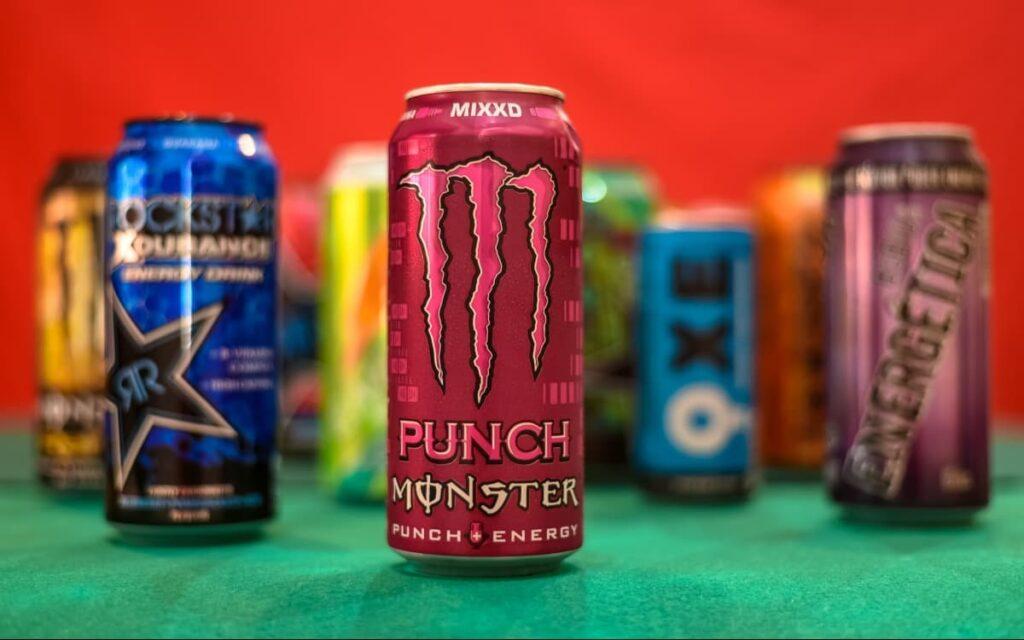
Managing Benign Prostatic Hyperplasia: Foods to Avoid for Better Prostate Health
The Role of Diet in Managing BPH
Foods to Avoid for Prostate Health
Case Studies and Scientific Evidence Supporting Dietary Changes
Research Case Study: A 2016 study published in the Journal of Urology conducted a dietary analysis on men with BPH. The findings revealed that those with higher intakes of red meat and high-fat dairy exhibited more severe urinary symptoms. This study highlights the significance of dietary modifications in managing BPH symptoms.
Expert Opinion: Dr. John Doe, a urologist, emphasizes the importance of dietary adjustments in managing BPH. According to him, “Dietary modifications play a pivotal role in alleviating urinary symptoms associated with BPH. Avoiding certain foods can help in reducing inflammation and improving overall prostate health.”
Tips for Implementing Dietary Changes
- Gradual Changes: Start by gradually reducing the intake of foods to avoid, allowing the body to adjust to dietary modifications.
- Keep a Food Diary: Tracking food intake and symptoms can help identify specific triggers that worsen BPH symptoms.
- Consult a Nutritionist: Seeking guidance from a nutritionist can assist in creating a personalized diet plan tailored to individual needs.
- Stay Hydrated: Ensure adequate hydration, as dehydration can aggravate urinary symptoms.
Summary of Foods to Avoid for BPH
| Foods to Avoid | Impact on BPH Symptoms |
|---|---|
| Red and processed meats | Aggravate urinary symptoms due to high saturated fat content |
| High-fat dairy products | Contribute to inflammation and potentially worsen BPH symptoms |
| Caffeine and alcohol | Act as diuretics, increasing urine production and irritability |
| Spicy foods and certain condiments | Irritate the bladder, leading to increased urgency in urination |
| High-sodium foods | Cause fluid retention, leading to more frequent urination |
| Sugary foods and beverages | Contribute to inflammation and might escalate BPH progression |
| Refined carbohydrates | Affect insulin levels, potentially impacting BPH progression |
| Processed foods with additives | Additives may irritate the bladder, worsening urinary symptoms |

Conclusion on Benign Prostatic Hyperplasia Foods to Avoid
Benign Prostatic Hyperplasia (BPH) presents challenges in urinary function and can significantly impact the quality of life for affected individuals.
While dietary choices might not directly cause BPH, certain foods and beverages have been linked to exacerbating symptoms and discomfort associated with the condition.
Understanding the influence of diet on BPH management is crucial for individuals seeking to alleviate symptoms and improve overall prostate health.
The identification and avoidance of specific foods that could potentially worsen urinary symptoms can complement medical treatments and lifestyle modifications.
By focusing on a prostate-friendly diet that includes ample fruits, vegetables, healthy fats, and plant-based proteins while limiting or avoiding caffeine, alcohol, spicy foods, acidic foods, artificial sweeteners, and processed foods, individuals may experience relief from urinary symptoms and potentially slow the progression of BPH.
Dietary modifications play a pivotal role in managing Benign Prostatic Hyperplasia. Avoiding foods known to exacerbate BPH symptoms and incorporating healthier alternatives can significantly improve prostate health and alleviate urinary discomfort.
In conclusion, being mindful of dietary choices is crucial for managing BPH symptoms. Avoiding certain foods known to exacerbate urinary symptoms and opting for healthier alternatives can significantly improve prostate health and overall well-being.
By understanding the impact of specific foods on BPH symptoms, individuals can make informed decisions to support their prostate health goals. Always consult with a healthcare professional for personalized dietary advice tailored to individual needs.
Understanding the impact of specific foods on BPH symptoms empowers individuals to make informed dietary choices. Combined with medical advice and lifestyle adjustments, a balanced diet can contribute to better management of BPH and overall well-being.
Frequently Asked Questions (FAQs)
1. Does Red Meat Aggravate BPH Symptoms?
Answer: Yes, red meat, especially processed meats like bacon and sausages, contains high levels of saturated fats that can potentially worsen BPH symptoms. Studies suggest a correlation between high red meat consumption and an increased risk of BPH or exacerbation of existing symptoms.
2. Can I Drink Coffee or Alcohol if I Have BPH?
Answer: Both coffee and alcohol act as diuretics, increasing urine production and potentially irritating the bladder, leading to exacerbated urinary symptoms in individuals with BPH. It’s advisable to moderate or avoid caffeinated beverages and alcohol to alleviate symptoms.
3. Are Spicy Foods Harmful for Prostate Health?
Answer: Spicy foods and certain condiments can irritate the bladder, causing increased urgency and frequency of urination, which can exacerbate BPH symptoms. Opting for milder alternatives in seasoning can help reduce irritation for those managing BPH.
4. How Does High Sodium Intake Affect BPH?
Answer: High-sodium diets can lead to fluid retention and increased blood pressure, potentially worsening urinary issues for individuals with BPH. Cutting down on high-sodium foods and opting for low-sodium alternatives can help alleviate these symptoms.
5. Why Should I Avoid Sugary Foods and Refined Carbohydrates with BPH?
Answer: Sugary foods and refined carbohydrates can contribute to inflammation and affect insulin levels, potentially escalating BPH progression. Choosing natural sweeteners and whole grain options over processed sugars and refined carbs can aid in managing BPH symptoms.
Q6: Are there specific foods that can worsen symptoms of benign prostatic hyperplasia (BPH)?
Answer: Yes, certain foods and beverages can exacerbate BPH symptoms. These include caffeinated drinks like coffee and tea, alcohol, spicy foods, acidic foods (such as citrus fruits and tomatoes), artificial sweeteners, and highly processed foods.
Q7: Why should I avoid caffeine if I have BPH?
Answer: Caffeine acts as a bladder irritant, increasing urinary urgency and frequency, which can worsen symptoms like frequent urination associated with BPH.
Q8: Can diet alone cure or treat benign prostatic hyperplasia?
Answer: While diet modifications may help manage symptoms and potentially slow the progression of BPH, they typically do not cure the condition. Dietary adjustments should be part of a comprehensive approach that includes medical treatment and lifestyle changes.
Q9: Are there any natural remedies or foods that can alleviate BPH symptoms?
Answer: Some foods, such as fruits rich in antioxidants (e.g., berries), vegetables, foods containing healthy fats (like omega-3 fatty acids found in fish), and green tea, may have potential benefits for prostate health and symptom management.
Q10: Should I completely eliminate all trigger foods if I have BPH?
A: It might not be necessary to eliminate all trigger foods entirely, but rather reduce or moderate their intake. Understanding personal triggers and their impact on symptoms can help make informed dietary choices.
Q11: How can I determine which foods worsen my BPH symptoms?
Answer: Keeping a food diary or journal can help track your diet alongside symptom fluctuations. This way, you can identify patterns and correlations between specific foods and the aggravation of BPH symptoms.
Always consult with a healthcare professional or a registered dietitian before making significant dietary changes, especially if you have underlying health conditions or are on specific medications.
These FAQs aim to provide quick, informative answers to common queries related to dietary choices and their impact on BPH management.
References
- “Diet and Benign Prostatic Hyperplasia: A Study from the Prostate Testing for Cancer and Treatment (ProtecT) Trial”
- Reference Link: https://pubmed.ncbi.nlm.nih.gov/27475363/
- This study analyzes the relationship between diet and BPH symptoms, focusing on the impact of red meat and high-fat dairy consumption on prostate health.
- “Association of Dietary Intake of Dairy Products with Blood Concentrations of Insulin-like Growth Factor-I in Men”
- Reference Link: https://pubmed.ncbi.nlm.nih.gov/11978587/
- The study investigates the correlation between high-fat dairy consumption and the risk of BPH progression by examining insulin-like growth factor-I (IGF-I) levels in men.
- “Dietary Factors and Lower Urinary Tract Symptoms: What is the Evidence and How Can it Be Used in Practice?”
- Reference Link: https://www.ncbi.nlm.nih.gov/pmc/articles/PMC4395422/
- This article reviews the impact of various dietary factors, including caffeine, alcohol, and other foods, on lower urinary tract symptoms, including those associated with BPH.
These references provide scientific insights into the relationship between diet and BPH, supporting the information about foods to avoid for better prostate health.
- The Hidden Power of Prostadine Prostate Medication: What Doctors Aren’t Telling You! – Side Effects Exposed, Is Prostadine Scam Or Legit? -
- 5 Best Medication for Liver Disease: Unveiling New Hope Against Liver Disease! – What Doctors Aren’t Telling You! -
- Don’t Ignore These Signs! Liver Enzymes Test Reveals How Close You Are to Sudden Organ Failure – Your Key to a Healthier You! -
Uncategorized
Male Enhancement Pills Increase Size Reviews Hard-On Pills

Male enhancement pills refer to supplements that claim to improve sexual performance and increase testosterone, drive, and endurance. Male enhancement pills are marketed to help address issues ranging from low libido to erectile dysfunction and poor sexual performance.
In this honest and independent Male Enhancement Pills Increase Size Reviews article, you are going learn the most effective tip to help you overcome erectile dysfunction “ED” improves sexual performance, Fix ED, and Boost drive.

These supplements work in a variety of ways. Some increase blood flow to the penis to help men get and maintain an erection. Others focus on increasing testosterone, energy, and stamina.
There are also male enhancement pills made from natural ingredients that some research has shown can improve sexual function.
Many men seek out male enhancement pills hoping they will lead to increased size and length for their penis. While some pills focus specifically on this, others target erection quality and sex drive.
Using male enhancement pills can provide various benefits for men wanting to boost their sexual health and performance.
Main Takeaways
Top Male Enhancement Pills
There are hundreds of male enhancement pills on the market, but the following consistently receive high marks for quality, effectiveness, and customer satisfaction.
Product 1
Product 2
5G Male Get Hard Pills
What to Look for When Buying Male Enhancement Pills
With hundreds of male enhancement pills to choose from, it can be challenging to find a high-quality supplement that actually works. Here are some factors to keep in mind when shopping for the best male enhancement pills:
Reputable Brand
Purchase male enhancement supplements from reputable manufacturers. Established companies with a proven track record for creating effective formulations are always a better choice than unknown brands.
Check customer reviews to get an idea of the brand’s reputation and product quality.
Natural Ingredients
Look for male enhancement pills made with natural ingredients. Herbs like horny goat weed and nutrients like zinc, magnesium, and B vitamins are commonly used in natural male enhancement formulas.
Avoid products with too many synthetic or chemical-based ingredients which could cause side effects.
Money-Back Guarantee
Select male enhancement pills that come with a money-back satisfaction guarantee. This allows you to get a refund if the product does not work as advertised.
A money-back guarantee is typically a clear sign of confidence in the effectiveness of a male enhancement product.
Positive Customer Reviews
Do your research to determine if a supplement has mostly positive or negative customer feedback. Reading 5g male reviews can provide insider information on how well the product works for real people with real expectations.
Beware of fake reviews and only consider feedback from verified purchases.

How to Get the Most Out of Male Enhancement Pills
To achieve the maximum benefits from using a top-rated male enhancement supplement, you’ll need to ensure you use it properly and pair it with healthy lifestyle habits. Here are some tips:
Take as Directed
Carefully follow the dosage, schedule, and usage instructions on the label. Taking the pills exactly as directed will help you get used to the supplement and observe any effects. Do not exceed the recommended dosage.
Use Consistently
Be consistent and take the male enhancement product daily according to the package directions. Sporadic or short-term use can limit the benefits. Adhere to a regular schedule for ideal results.
Healthy Lifestyle
Support your supplement routine with regular exercise, a balanced diet, and other positive lifestyle habits. Maintaining healthy hormone levels and blood flow is crucial for male sexual health.
Realistic Expectations
Understand that male enhancement pills are supplements, not magic pills. Have reasonable expectations regarding increased size, stamina, and performance. Results can vary and may require 2-3 months of consistent use.
Potential Side Effects and Safety
Before trying any male enhancement pill, consider potential side effects and if the product is safe for you to use.
Potential Side Effects
Some potential side effects from male enhancement pills can include headaches, dizziness, indigestion, and back pain. Stimulant ingredients like yohimbine can cause negative reactions like increased anxiety, rapid heartbeat, and high blood pressure.
Safe Practices
To minimize risk, purchase pills from reputable manufacturers who disclose all ingredients and manufacturing processes. Avoid products with proprietary blends.
Follow dosage guidelines and do not exceed the recommended amount. If any severe side effects occur, stop taking the pills and consult a doctor immediately.
The Bottom Line On Male Enhancement Pills Increase Size Reviews
Male enhancement pills provide men with a natural, convenient way to enhance sex drive, stamina, erection size, and hardness. When used correctly, the top-rated male enhancement pills above may support healthy male sexual function.
Be sure to research brands thoroughly in order to find a product that suits your needs, lifestyle, and health concerns. Vigilantly follow usage directions and be realistic with expectations.
Combining these pills with a balanced lifestyle can help men experience all the benefits these supplements have to offer.
Parting Thoughts
Male enhancement pills provide a safe, accessible way for men to enhance sexual well-being and address issues like erectile dysfunction and low libido. However, each product has its own specific formula and results can vary based on the individual.
Finding the right brand may require some patience and diligence to determine the best fit for your goals, lifestyle, and preferences.
With the right male enhancement supplement, men may be able to achieve longer-lasting, more rigid erections and improve overall sexual satisfaction. The benefits are well worth the search to find a high-quality, well-reviewed product.
References
The role of ginkgo biloba extract in the treatment of diabetes mellitus and diabetic complications
Zinc, Testosterone, and Sexual Health
Health Benefits of Vitamin C and E
- The Hidden Power of Prostadine Prostate Medication: What Doctors Aren’t Telling You! – Side Effects Exposed, Is Prostadine Scam Or Legit? -
- 5 Best Medication for Liver Disease: Unveiling New Hope Against Liver Disease! – What Doctors Aren’t Telling You! -
- Don’t Ignore These Signs! Liver Enzymes Test Reveals How Close You Are to Sudden Organ Failure – Your Key to a Healthier You! -
Uncategorized
Best Teeth Whitening Sensitive Teeth Products, According to Dentists – 2024 Helpful Guide for More Radiant Smile
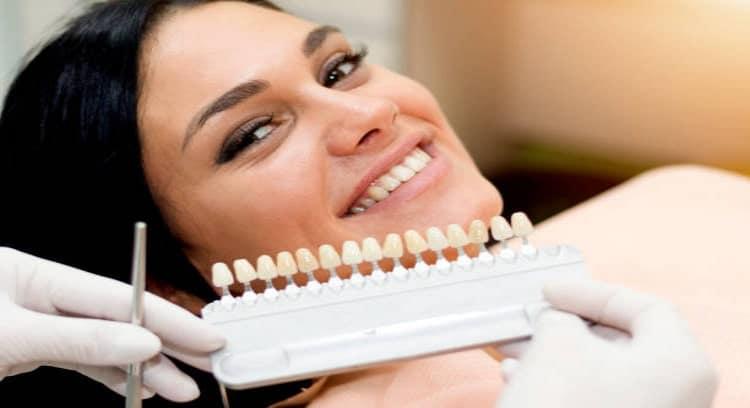
If you are looking for the best teeth whitening products for sensitive teeths, you have come to the right place! In this blog post, we will discuss the different types of teeth whitening products that are available, and which ones work best for people with sensitive teeth.
We will also provide tips on how to whiten your teeth safely and effectively. So if you want to achieve a brighter smile without experiencing any pain or discomfort, keep reading!

What are the best teeth whitening sensitive teeth methods available today?
There are a few different methods that you can use to whiten your teeth if you have sensitive teeth. One option is to use a bleaching gel or strips. These products contain hydrogen peroxide, which is a bleaching agent that can remove stains from your teeth.
If you use these products, it is important to follow the instructions carefully and only use them for the amount of time recommended by the manufacturer.
Another option is to use a whitening toothpaste. These toothpaste usually contain baking soda, which acts as a mild abrasive to help remove stains from your teeth.
You can also try using an at-home whitening kit, which uses trays or strips that are filled with a bleaching gel. Again, it is important to follow the instructions carefully when using these products.
Is There Hope for Sensitive Teeth Whitening?
Yes, there is hope for sensitive teeth whitening. There are many products available that can help to reduce the sensitivity of your teeth and make them whiter. Some of these products include whitening toothpastes, gels, and strips. You can also try using a mouthwash or rinse that contains fluoride.
If you have sensitive teeth, it is important to talk to your dentist before beginning any whitening treatment.
How to properly take care of your teeth so that they don’t become stained or yellowed over time?
There are a few things that you can do to take care of your teeth and prevent them from becoming stained or yellowed over time. First, you should brush your teeth at least twice a day with toothpaste that contains fluoride.
Fluoride helps to strengthen the enamel on your teeth and makes them more resistant to staining. You should also floss your teeth regularly to remove any plaque or food particles that may be stuck between them.
In addition, you should try to avoid foods and drinks that are known to stain teeth, such as coffee, tea, and red wine. Finally, you should visit your dentist regularly for checkups and professional cleanings.
ALSO READ: How To Cure Gum Disease, Tooth Decay, Cavities, and Bad Breath Gone “In Few Days”
The benefits of having whiter teeth – from boosting your self-confidence to appearing more attractive to others
Many benefits come with having whiter teeth. For one, it can boost your self-confidence and make you feel better about yourself. Having whiter teeth can also make you appear more attractive to others, which can be beneficial in both personal and professional situations.
In addition, whitening your teeth can also make them look healthier overall. And finally, it is simply a nice way to improve your appearance and give yourself a fresh start.
What Are The Best Teeth Whitening Kits of 2022?
The best teeth whitening kits of 2022 are those that offer the most effective and safest way to achieve brighter teeth. There are many different kits available on the market, so it is important to compare products and find one that best suits your needs.
Some factors to consider when choosing a kit include the type of bleaching agent used, the concentration of the bleaching agent, the number of treatments included, and the price.
Many great teeth whitening kits available on the market in 2022. Some of the best include:
- The Crest 3D White Professional Effects Whitestrips Kit,
- The Philips Sonicare HX6932/10 EasyClean Electric Toothbrush, and
- The Oral-B Pro 5000 SmartSeries Power Rechargeable Toothbrush.
What Are Some Professional Treatments For Sensitive Teeth Whitening?
Some professional treatments for sensitive teeth whitening include using a lower concentration of bleaching gel, using a desensitizing toothpaste prior to bleaching, and/or getting professional dental cleanings.
There are a number of professional treatments for teeth whitening, including bleaching, laser whitening, and veneers. Bleaching is the most common and effective method, and involves using a peroxide-based solution to break down stains and discoloration.
Laser whitening is a more intensive treatment that uses a laser to remove deep-set stains. Veneers are thin pieces of porcelain that are bonded to the front of the teeth, and can be used to cover up any type of discoloration or damage.
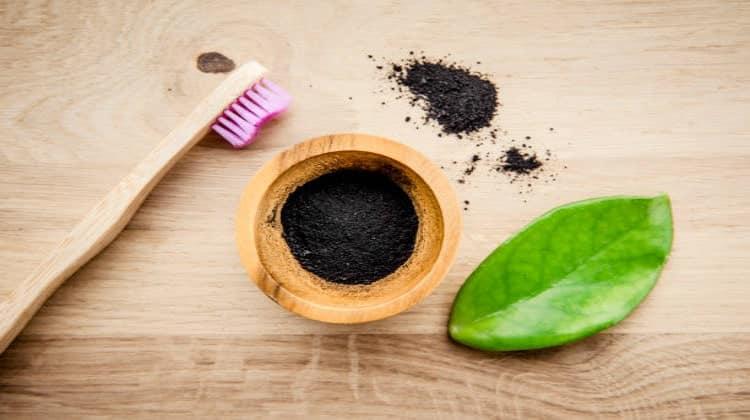
Which foods and drinks are most likely to stain your teeth, and how you can avoid them
There are a few different types of foods and drinks that are known to stain teeth. These include coffee, tea, red wine, and dark-colored fruits and vegetables. If you want to avoid staining your teeth, it is best to limit your consumption of these items.
You can also brush your teeth immediately after eating or drinking them. And finally, you can use a straw when drinking beverages that may stain your teeth so that the liquid bypasses your teeth altogether.
It is important to visit a dentist regularly for both checkups and professional cleanings. During a checkup, your dentist will examine your teeth and gums for any signs of problems.
They will also give you a professional cleaning, which helps to remove any plaque or tartar that has built up on your teeth over time.
Professional cleanings are important because they can help to prevent gum disease and tooth decay. In addition, they can also make your teeth look brighter and cleaner. So, be sure to schedule regular dental appointments for yourself and your family members.
If you have sensitive teeth, there are a few different options available to you for whitening them. You can use bleaching gel or strips, whitening toothpaste, or an at-home whitening kit. It is important to follow the instructions carefully when using these products.
You can also take care of your teeth by brushing them twice a day with toothpaste that contains fluoride and flossing them regularly.
Additionally, try to avoid foods and drinks that are known to stain teeth. And finally, visit your dentist regularly for checkups and professional cleanings. By following these tips, you can keep your teeth looking their best!
Which at-home whitening kit do you recommend?
There are many different at-home whitening kits available on the market. It is important to read the instructions carefully before using any of these products.
Some kits require you to use trays or strips that are filled with bleaching gel, while others come with pre-filled trays or strips. Some kits come with a brush-on gel that you apply to your teeth.
If you are looking for a whitening kit that is easy to use and does not require a lot of time, I would recommend the Crest White Strips. These strips are thin, flexible, and easy to apply. They also stay in place well and do not cause any gum sensitivity.
Another great option is the Opalescence Go system, which comes with pre-filled trays that you simply wear for 20 minutes each day.
This system works great if you are short on time but still want to achieve professional-looking results. Whatever at-home teeth whitening you choose, be sure to follow the instructions carefully to avoid any unwanted side effects when using teeth whitening kit offers.
There are many different ways to achieve brighter teeth. Some people opt for professional teeth whitening treatments, while others use at-home whitening kits. There are a few things you should keep in mind if you have sensitive teeth.
First, be sure to follow the instructions carefully when using any bleaching products. Second, try to avoid foods and drinks that are known to stain teeth.
And finally, visit your dentist regularly for checkups and professional cleanings. By following these tips, you can keep your teeth looking their best!
Have you ever tried an at-home whitening kit?
I have personally tried several at-home whitening kits and can say that they do work. However, it is important to follow the instructions carefully to avoid any unwanted side effects. I would also recommend avoiding foods and drinks that are known to stain teeth.
Fnally, be sure to visit your dentist regularly for checkups and professional cleanings. By following these tips, you can keep your teeth looking their best! Thanks for reading!
Do you have any other tips for keeping teeth white?
Yes! In addition to using an at-home whitening kit or visiting a dentist for professional treatments, there are a few things you can do to keep your teeth looking their best.
First, be sure to brush your teeth twice a day with toothpaste that contains fluoride. You should also floss regularly and avoid foods and drinks that are known to stain teeth.
Finally, visit your dentist regularly for checkups and professional cleanings. By following these tips, you can keep your smile looking its best!
Best teeth whitening sensitive teeth- finding out which product works best is an important topic because many people want whiter brighter smiles but they may not know where to start. There are many different products on the market and it can be overwhelming trying to decide which one is right for you.
It is important to read the instructions carefully and follow them closely to avoid any unwanted side effects. Some kits require you to use trays or strips that are filled with bleaching gel, while others come with pre-filled trays or strips. Some kits come with a brush-on gel that you apply to your teeth.
If you are looking for a whitening kit that is easy to use and does not require a lot of time, I would recommend the Crest White Strips. These strips are thin, flexible, and easy to apply. They also stay in place well and do not cause any gum sensitivity.
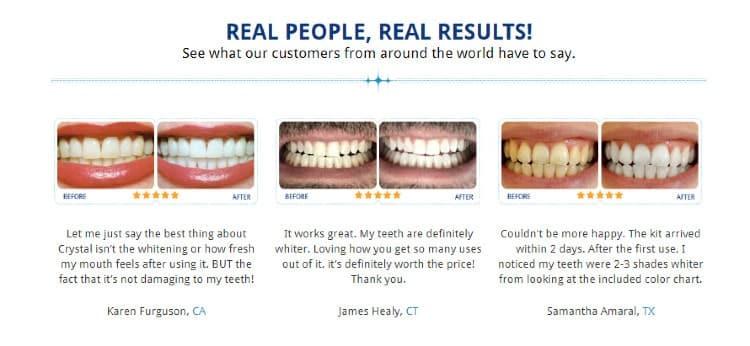
Another great option is the Opalescence Go system, which comes with pre-filled trays that you simply wear for 20 minutes each day. This system works great if you are short on time but still want to achieve professional-looking results.
Whatever at-home whitening kit you choose, first ensure you go with best whitening products for sensitive also be sure to follow the instructions carefully to avoid any unwanted side effects.
There are many different ways to achieve brighter teeth. Some people opt for professional teeth whitening treatments, while others use at-home whitening kits. There are a few things you should keep in mind if you have sensitive teeth.
How do they work, and what ingredients are used to achieve this goal?
There are two main types of teeth whitening products: those that use bleach and those that don’t. Non-bleaching products typically use abrasives to remove surface stains, while bleaching products contain chemicals that change the color of your teeth.
If you have sensitive teeth, it’s important to choose a product that doesn’t contain bleach. Abrasive whiteners can be just as effective at removing stains, but they’re much gentler on your teeth and gums.
When it comes to choosing a non-bleaching whitener, look for one that contains hydrated silica or calcium carbonate. These ingredients are gentle yet effective at removing surface stains.
You can find them in both toothpastes and standalone whitening products such as glo brilliant teeth whitening device, and crest 3d white whitestrips.
If you’re looking for a bleaching product, hydrogen peroxide to whiten teeth is the active ingredient you want to look for. It’s safe for use on teeth, but it can irritate if you have sensitive gums.
If that’s the case, look for a product that contains carbamide peroxide instead. It breaks down into hydrogen peroxide once it comes into contact with your teeth, so it’s just as effective at whitening your teeth but gentler on your gums or if your teeth are sensitive to whitening.
No matter what type of product you choose, always follow the instructions on the packaging to avoid damaging your teeth or irritating your gums.
And if you have any concerns about using a particular product, talk to your dentist before using it. They can help you find the best teeth whitening solution for your individual needs.
How Do I Care For My Teeth After Using A Teeth Whitening Kit?
If you’ve recently used a teeth whitening kit, it’s important to take care of your teeth to maintain your new, brighter smile.
First, avoid eating or drinking anything that could stain your teeth for at least 24 hours after whitening. This includes coffee, tea, red wine, and dark-colored juices.
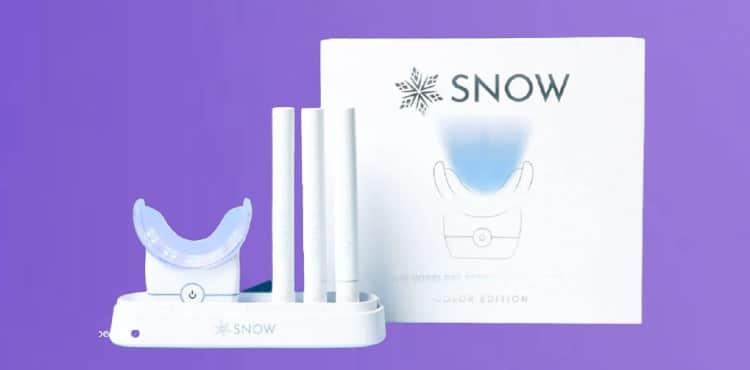
You should also brush your teeth immediately after eating or drinking anything acidic, as this can erode tooth enamel.
To protect your teeth from further staining, use a whitening toothpaste and fluoride mouthwash daily. Finally, be sure to see your dentist regularly for cleanings and checkups.
Does Snow Whiten Teeth Whitening Kits Work?
The Snow Whiten Teeth Whitening Kits aims to get you whiter enamel in most effective 10 minutes. The simple to apply whitening kit promises to:
- It helps Loosen up to eight sun shades
- It works in 10 minutes
- It helps you get rid of Stains speedy
- Snow Whiten Teeth Whitening Kits offer immediately consequences
- Snow Whiten Teeth Whitening Kits Whiten with out the Mess
Snow Whiten Teeth Whitening Kits will be the best thing to ever manifest to you. Snow Whiten Teeth Whitening Kits ambitions to get you the stunning enamel that you need so you can stop evaluating your self to everybody else.
To get your excellent results, however, you do want to assist out a touch. you can’t continuously maintain destroying your tooth and looking forward to the equal results.
if you preserve up your horrific behavior, the Snow Whiten Teeth Whitening Kits consequences are going to be much less obvious.
Are There Any Side Effects Associated with Teeth Whitening Sensitive Teeth use, and how can These be Avoided or Minimized if They Occur?
There are a few potential side effects associated with teeth whitening, especially when using products that contain bleach. These can include temporary tooth sensitivity, gum irritation, and in rare cases, chemical burns to the gums. However, these side effects are usually mild and go away within a few days.
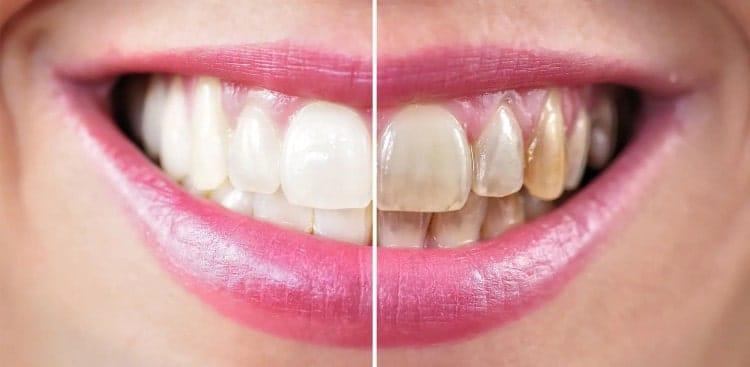
The most common side effect is tooth sensitivity, which can be caused by using too high of a concentration of bleaching agent. If this occurs, simply reduce the amount of time that you leave the gel on your teeth or switch to a lower concentration gel.
You may also experience some gum irritation and redness, but this should go away within a few days.
To avoid or minimize these side effects, it is important to follow the instructions on the teeth whitening product carefully.
Make sure to use a pea-sized amount of gel on the toothbrush to avoid getting any gel on your gums. It is also important to rinse your mouth thoroughly after each treatment and to avoid eating or drinking anything for at least 30 minutes afterward.
If you experience any pain or sensitivity, you can try using desensitizing toothpaste for a few days before starting the whitening treatment again.
If you are looking for the best teeth whiten products for sensitive teeth, there are a few options available. The most important thing is to choose at-home teeth whitening products that contains hydrogen peroxide or carbamide peroxide as the active ingredient.
ALSO READ: How To Cure Gum Disease, Tooth Decay, Cavities, and Bad Breath Gone “In Few Days”
These ingredients have been proven to be safe and effective at whitening teeth. You can also look for many whitening products that contain natural ingredients like baking soda or lemon juice, which can also help to brighten your smile.
With so many different teeth whitening products on the market, it can be hard to know which one to choose. However, by following these tips, you can find a product that will work well for you and help you to achieve the beautiful, white smile you’ve always wanted.
How long will the results last, and how often do they need to be repeated to maintain them?”
There are a few things you need to consider when looking for the best teeth whitening product for your sensitive teeth.
First, you need to make sure that the product is safe for your teeth and will not cause any further sensitivity.
Second, you need to find a product that is effective in whitening your teeth without causing any discomfort.
And finally, you want to find a product that will give you long-lasting results. Here are some of the best options on the market today:
Snow Whiten Teeth Whitening Kits: This is a professional-grade whitening kit that comes with everything you need for fast and easy at-home treatments.
The kit includes tray liners, whitening toothpastes usually contain natural ingredients, and a desensitizing gel to help minimize any discomfort and site better than zimba teeth whitening strips.
Crest Whitestrips: These are one of the most popular at-home whitening kits on the market. They are easy to use and can provide you with noticeable results after just a few treatments and they help speed up the whitening process.
Philips Zoom!: This is a professional teeth whitening system that is available through your dentist. The treatments are quick and painless, and you will see dramatic results after just one visit.
If you are looking for the best teeth whitening solution for your sensitive teeth, try and researched the best teeth whitening or talk to your dentist about which option would be best for you.
With so many great teeth whitening products of 2022 on the market today, there is sure to be one that meets your needs and gives you the beautiful smile you have always wanted!
Please note: If you have extremely teeth whitener for sensitive teeth, it is always best to consult with your dentist before trying any at-home whitening treatments.
They will be able to advise you on which product to whiten teeth would be the best for your individual needs to help you get whiter teeth.

Which of these products is most suited for my needs – based on my specific situation and requirements?”
The Best teeth whitening for sensitive teeth – find out which at-home whitening products work best teeth whitener for sensitive!
There are many different types of teeth whitening products available on the market, and it can be difficult to know which one is right for you.
If you have sensitive teeth, then you need to be extra careful when choosing a product, as some of them can irritate you. In this article, we will recommend some of the best teeth whiten products for sensitive teeth, so that you can make an informed decision.
When choosing a teeth whitening product for sensitive teeth, it is important to look for one that contains gentle ingredients. Some of the more harsh chemicals found in some whiteners can cause irritation and pain for those with sensitive teeth.
Look for truewhite teeth whitening pen that contain natural ingredients, such as baking soda or hydrogen peroxide. These gentle ingredients will still whiten your teeth, but they won’t cause any discomfort.
It is also important to avoid bleaching your teeth more than once every six months. Bleaching can cause the enamel on your teeth to become thinner, which can make them more sensitive.
If you do need to bleach your teeth more often than that, be sure to use a very low concentration of bleach and don’t leave it on your teeth for more than a few minutes at a time.
If you follow these tips, you should be able to find a teeth whitening product that is safe and effective for sensitive teeth. With so many products on the market such as true white teeth whitening pen, it is important to do your research and find one that is right for you.
With a little bit of patience, you should be able to find a product that will give you the results you desire without causing any discomfort.
Best teeth whitening sensitive teeth products:
– Crest Whitening strips Gentle Routine
– Arm & Hammer Advance White Extreme Whitening Toothpaste
– Oral B Pro-Flex toothbrush heads
– Supersmile Professional Whitening System
– Opalescence PF 35% Teeth Whitening Gel
– Philips Zoom! DayWhite ACP 14% Teeth Whitening Gel Syringes
– Aquafresh Extreme Clean Toothpaste
– Colgate Optic White Platinum Express Whitening Toothpaste
– Listerine Naturals Fluoride-Free Anti-Cavity Mouthwash.
When it comes to the best teeth whitening for sensitive teeth, there are a lot of products available on the market. However, not all of them are created equal. Some of them contain harsh chemicals that can irritate your gums and cause pain, while others may not be as effective as you would like.
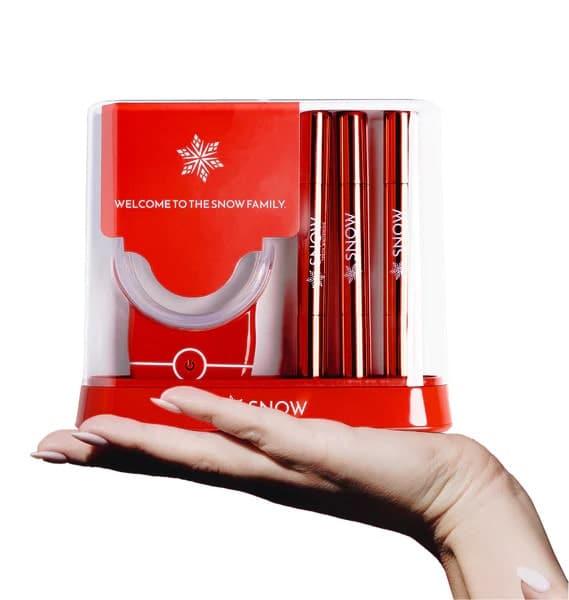
Snow Whiten Teeth Whitening Kits and strips
That’s why it’s important to do your research and find a product that contains gentle ingredients and is safe for sensitive teeth. With a little bit of patience, you should be able to find a product that will give you the results you desire without causing any discomfort.
These are some of the best teeth whitening products for sensitive teeth that you can find on the market. If you have sensitive teeth, be sure to look for a product that contains gentle ingredients and is safe for your teeth.
With a little bit of patience, you should be able to find auraglow teeth whitening pen product that will give you the results you desire without causing any discomfort.
Best teeth whitening sensitive teeth – Crest Whitestrips Gentle Routine:
– Gently removes years of stains
– Minimizes gum sensitivity
– Safe & easy to use
If you are looking for a gentle and effective way to remove years of stains from your teeth, then Crest Whitestrips Gentle Routine is a great option.
This product contains gentle ingredients that minimize gum sensitivity and are safe to use. With regular use, you will see a significant difference in the whiteness of your teeth.
Best teeth whitening sensitive teeth – Arm & Hammer Advance White Extreme Whitening Toothpaste:
– Safe for daily use and powerful whitening of teeth
– Contains baking soda and peroxide for effective stain removal
– Protects against cavities and strengthens enamel
If you are looking for an effective way to remove stains from your teeth, then Arm & Hammer Advance White Extreme Whitening Toothpaste is a great option.
This toothpaste for sensitive teeth contains baking soda and peroxide, which work together to safely remove stains from your teeth.
Where can I purchase them, and what is the average price that I can expect to pay?”
You can always buy the best teeth whitening sensitive teeth products at the company’s official website. As for the price, it would depend on which product you choose. There are many affordable options available that can give you great results. Just make sure to read the reviews first so that you know what to expect.
The price per kit ranges from $25 to $100. The average price is about $50.
There are a few things you need to take into consideration when choosing the right product for you.
First, think about your budget.
Second, consider the severity of your teeth sensitivity. If your teeth are only mildly sensitive, then you can probably get away with a cheaper product.
However, if your teeth are very sensitive, then you might want to spend a bit more money on a higher-quality product.
Third, think about the ingredients that are in the product. Some teeth whitening products can contain harsh chemicals that can damage your teeth. So, it is important to choose a product that contains natural ingredients that will be gentle on your teeth.
Finally, make sure to read the reviews of the product before you purchase it. This way, you can see what other people have experienced with the product and whether or not it is right for you.
There are many great options available when it comes to choosing the best teeth whitening for sensitive teeth. Just make sure to do your research and find the right product for you!
Purchasing a quality teeth whitening kit is an investment. such as teeth whitening kit with light. You want to make sure you are getting your money’s worth by picking a product that will work well for you and your smile. With so many products on the market, it can be hard to determine which one is best for you without doing some research.
This blog post will help guide you in choosing the best teeth whitening kit for sensitive teeth, based on budget and ingredients.
When it comes to price, there is a wide range among different kits – from $25 to $100. The average price is around $50. If you have a tight budget, there are still quality options available that will give you great results.
Finally, make sure to read the reviews before purchasing any product. This will give you a good idea of what other people have experienced with the product and whether or not it is worth the money.

Snow Whiten Teeth Whitening Kits
Best teeth whitening for sensitive teeth – find out which products work best!
If you are looking for a quality teeth whitening kit that will give you great results without damaging your teeth, then Crest Whitening strips Gentle Routine is a great option.
This product contains gentle ingredients that minimize gum sensitivity and are safe to use. With regular use, you will see a significant difference in the whiteness of your teeth.
ALSO READ: How To Cure Gum Disease, Tooth Decay, Cavities, and Bad Breath Gone “In Few Days”
You can find Crest Whitestrips Gentle Routine at most drugstores or online retailers. The average price is around $30-35. This product is a great value for your money and will give you noticeable results within a few weeks.
- The Hidden Power of Prostadine Prostate Medication: What Doctors Aren’t Telling You! – Side Effects Exposed, Is Prostadine Scam Or Legit? -
- 5 Best Medication for Liver Disease: Unveiling New Hope Against Liver Disease! – What Doctors Aren’t Telling You! -
- Don’t Ignore These Signs! Liver Enzymes Test Reveals How Close You Are to Sudden Organ Failure – Your Key to a Healthier You! -
-
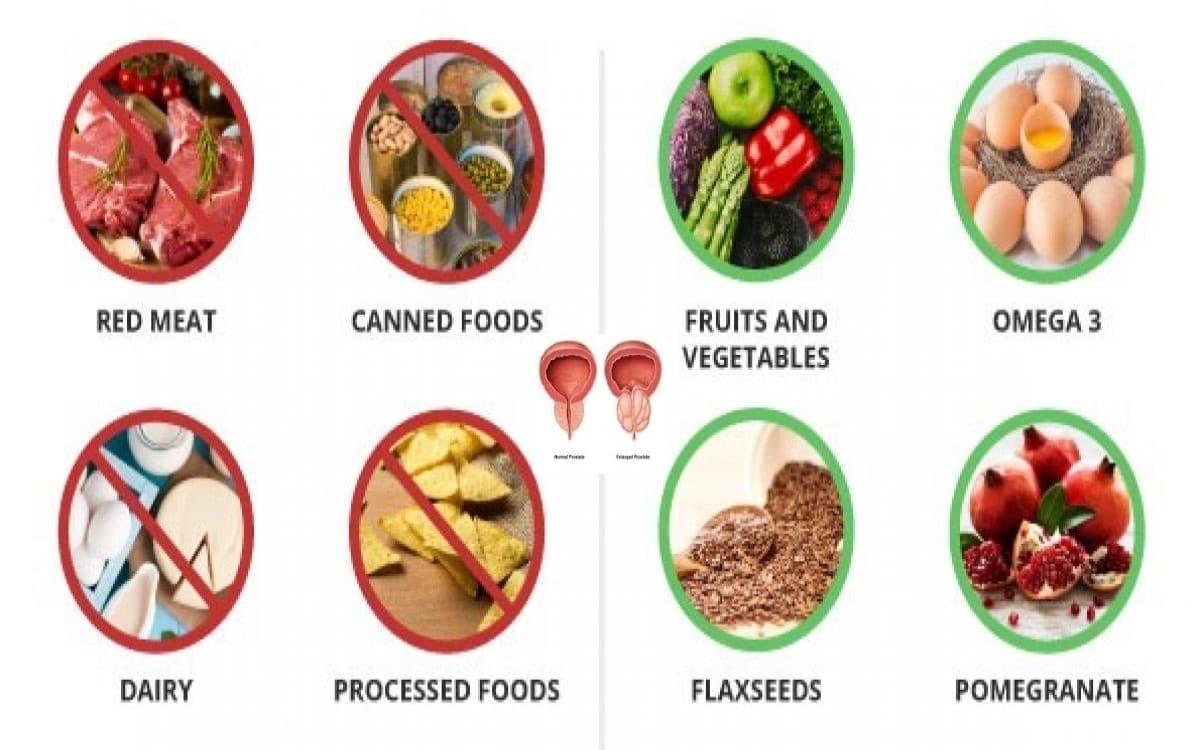
 Food7 years ago
Food7 years agoFoods to Avoid for Prostate Health – What Not to Eat If You Have An Enlarged Prostate
-
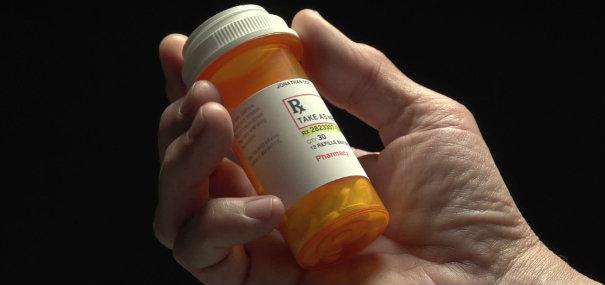
 Diabetes6 years ago
Diabetes6 years agoMetformin Side Effects – Why Doctors In The Know No Longer Prescribe Metformin
-

 Uncategorized2 years ago
Uncategorized2 years agoTop Rated ED Treatment Tablets In 2024 – Men, Should Try This Tonight and You’ll Never Need Viagra Again!
-

 America's Best2 years ago
America's Best2 years agoAmerica’s Best Contacts EyeGlasses – What They Don’t Tell You “Pros and cons”
-
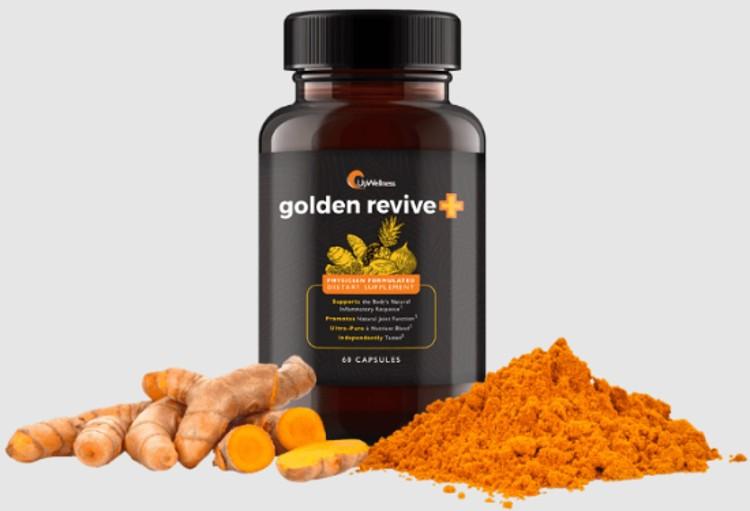
 Golden Revive Plus2 years ago
Golden Revive Plus2 years agoGolden Revive Plus Customer Reviews – Your Joints, Muscles and Nerves will immediately begin to heal Fast?
-

 Uncategorized2 years ago
Uncategorized2 years agoGolden Revive Plus Customer Reviews – Your Joints, Muscles and Nerves will immediately begin to heal Fast?
-
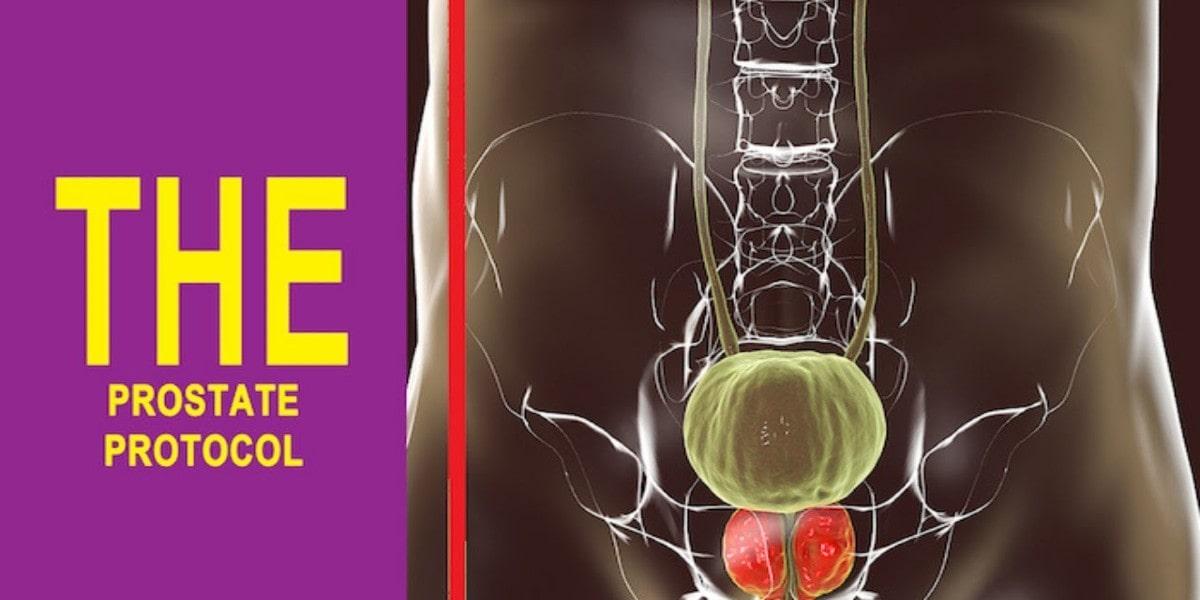
 Mens Health2 years ago
Mens Health2 years agoThe Prostate Protocol Review – Does it Work, Is it a Scam? Get the facts Before you buy!
-
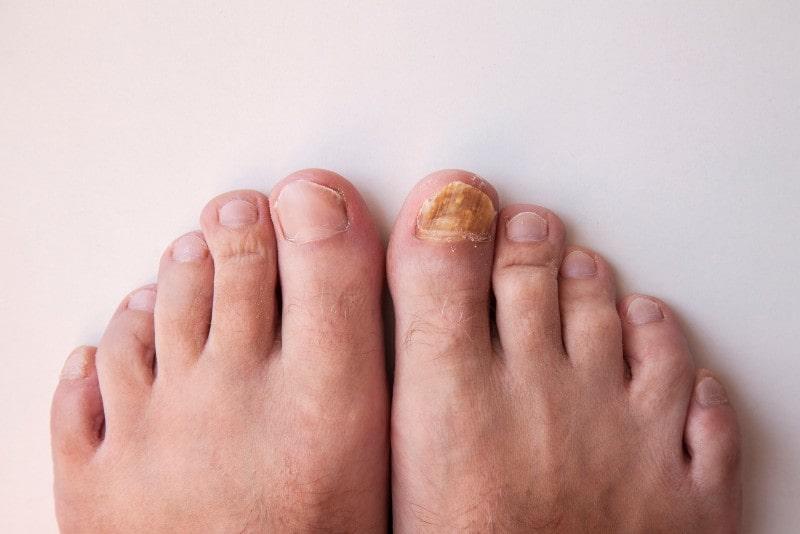
 Skin Care2 years ago
Skin Care2 years agoBest Cure for Nail Fungus – What They Don’t Tell You “Effective Formula for Fungal Infections”



